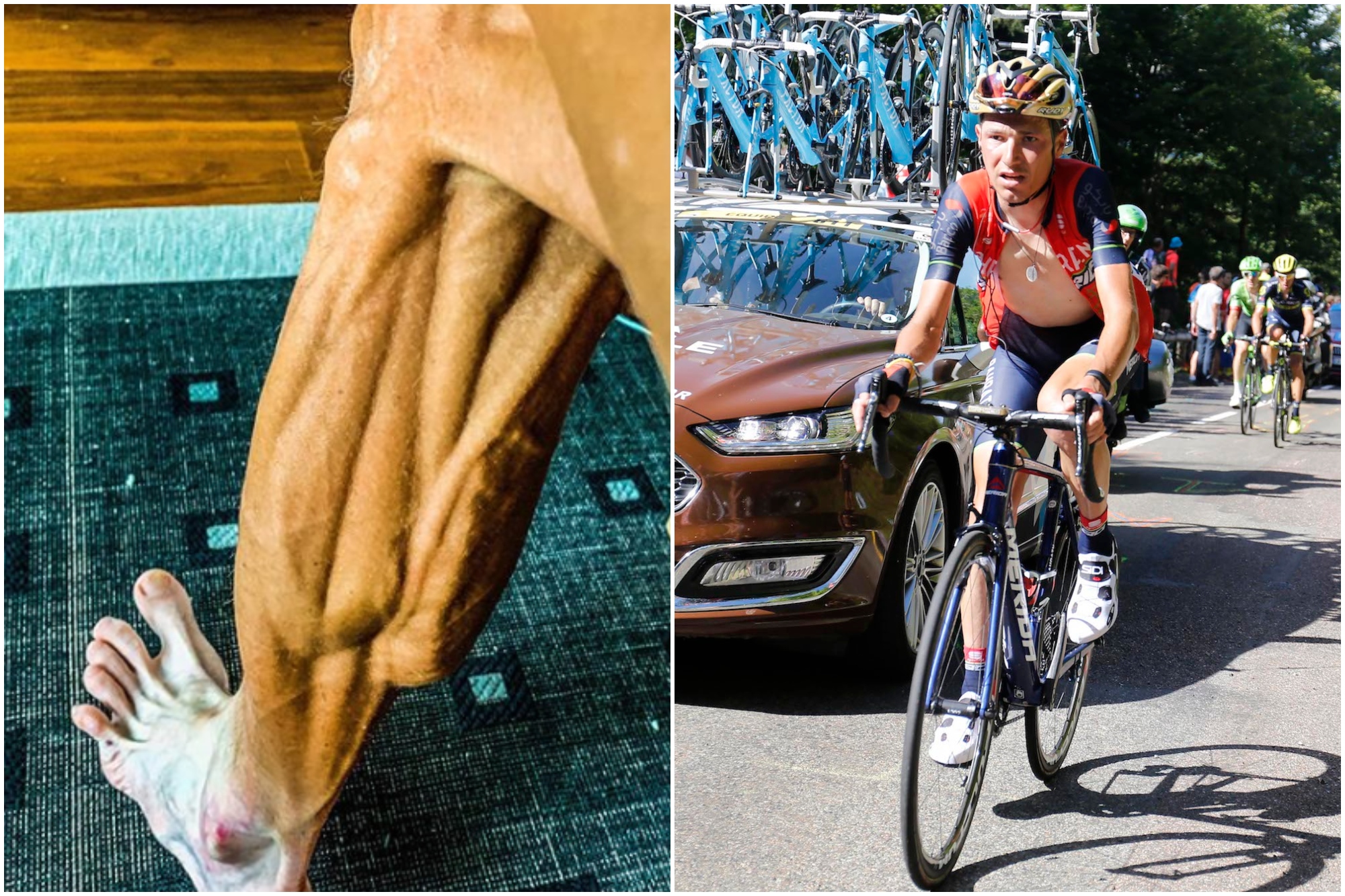Sports dietician says eating disorders in cycling are becoming a serious problem
Eating disorder expert Renee McGregor says causes include ‘win at all cost’ attitudes and social media


A sports dietician has reported an increase in the number of cyclists suffering from eating disorders.
Renee McGregor says she has seen a five-fold increase in the number of male riders being referred with disordered eating in the last year, while every new male client she has seen has been a cyclist.
McGregor, who has worked with Olympic, Paralympic and Commonwealth Games teams, pins the rise down to irresponsible coaching, ‘win at all costs’ culture and social media.
In an interview with Sky News, she said: “It’s a very fine line between being light enough to perform optimally and being so light that it starts to affect mental and physical health.
“I don’t think enough coaches, sporting teams and sporting bodies have the information and the education they need, so when that line is crossed, it’s often crossed at the expense of the athlete.”
There have been high-profile cases of eating disorders in the professional peloton, including Slovenian Jani Brajkovič.
The top-10 finisher in the Tour de France and former Critérium du Dauphiné winner posted an emotional update on his website in August, revealing his long-running and ongoing struggle with bulimia, saying that eating disorders are ignored in professional cycling.
The latest race content, interviews, features, reviews and expert buying guides, direct to your inbox!
Brajkovič said he had kept his bulimia hidden, but a positive test in July 2018 was the decisive moment.
After testing positive for the stimulant methylhexaneamine which was present in a dietary supplement, Brajkovič explained to the UCI that he had taken the contaminated product because the meal replacement powder he used was the only thing his bulimia would allow him to keep down.
>>> Are cyclists under-fuelling to breaking point?
Sky News also interviewed 19-year-old Oscar Mingay, who has suffered from an eating disorder as a result of chasing his dreams of being a pro cyclist.
He said: “If someone told me I was looking unwell I would think ‘great, I’m doing everything right’.”
Mingay would ride for three hours on nothing more than a bowl of porridge, a small portion of oats and a banana, weighing 45kg at his lightest.
Both Mingay and McGregor point to social media as a reason young cyclists are trying to lose weight to the detriment of their health.
Alex Ballinger is editor of BikeBiz magazine, the leading publication for the UK cycle industry, and is the former digital news editor for CyclingWeekly.com. After gaining experience in local newsrooms, national newspapers and in digital journalism, Alex found his calling in cycling, first as a reporter, then as news editor responsible for Cycling Weekly's online news output, and now as the editor of BikeBiz. Since pro cycling first captured his heart during the 2010 Tour de France (specifically the Contador-Schleck battle) Alex covered three Tours de France, multiple editions of the Tour of Britain, and the World Championships, while both writing and video presenting for Cycling Weekly. He also specialises in fitness writing, often throwing himself into the deep end to help readers improve their own power numbers. Away from the desk, Alex can be found racing time trials, riding BMX and mountain bikes, or exploring off-road on his gravel bike. He’s also an avid gamer, and can usually be found buried in an eclectic selection of books.
